Napoleon famously said that an army marches on its stomach. Today, we are the army and the coronavirus is the enemy. What should we be putting in our stomachs?
When everyone in our family (children all over the age of 21) came down with symptoms, we decided early into our 14-day quarantine that we’d be eating to shore up our immune systems. That meant cutting our intake of sugar and processed food, maintaining quality protein, and adding vitamin C and D and a daily brazil nut (a good source of selenium and magnesium) into the mix. We focused on eating nutritious food, just three times a day, with one meal all together in the evenings. (We’d quickly established that eating separately during the daytime was our only hope of getting our work done and, as importantly, not falling out with one another.)
To be honest, we’d mostly been eating this way before the virus struck. My husband and I have been a low-carb, real-food household for some time, and the kids, all living at university and in flats of their own, eat pretty well, even allowing for their twice a week Deliveroo habits. With persistent nagging on my part, they had eliminated inflammatory vegetable and seed oils from their diets and registered that eating mountains of carbs every day might not be ideal. But now, in quarantine, we were taking healthy eating to a new level. Everyone was fully on board.
A no snacking rule was essential. There simply wasn’t enough food for everyone to dip in and out of the fridge all day long. Being in quarantine, and with our on-line delivery still two weeks away, we were going to have to subsist on what was already in the house, topped up by the odd doorstep delivery from kind friends and neighbours, a single emergency delivery of meat and veg from our butcher, and one box of extremely delicious cheese ordered from The Courtyard Dairy Company.
The no processed food rule also seemed essential. We were conscious of the fact that too much salt and sugar (the core ingredients of most processed food) suppresses the immune function, but we also wanted to minimise the risk of more coronavirus germs coming into the house via plastic and cardboard containers.
What have we noticed in our 14 days of eating this way? There’s a lot less waste, for starters. With food now a very precious resource, we’ve made sure to use up even the most wilted of vegetables and every last scrap of cheese. We’ve had to be creative, dreaming up recipes based on what we have in the house, and that has been oddly satisfying. A friend of mine who has also been isolated with her family noticed the same thing, telling me that the “need to plan a menu more carefully had come to the fore, as had the art of improvisation – you can’t just pop out to get a missing ingredient, you have to think outside the brief with new recipes.”
We’ve also been reminded of just how much we rely on UK farmers to get fresh food to our tables. They are currently toiling relentlessly, and with massive labour shortages, to make sure we are all well fed. Never have we been so aware of their gift to us, and of our massive debt to them.
Has our diet helped us to fight the virus? We can’t know for sure. All we do know is that every one of us experienced only mild symptoms, and that we were all back to normal within days. The kids would not have known they’d contracted the virus at all had they not lost their senses of taste and smell. Eating well during quarantine is probably just one of the reasons the virus did not hit us hard or keep us down for long. Equally important is the fact that we were all in good metabolic health to begin with, and lucky to be without any underlying conditions. We were also fortunate in that we seem not to have been exposed to a high initial “virus load”, and viral loading definitely matters.
If we can’t be sure of the precise role that good food has played in restoring us to health, the experts are in no doubt about the fact that good metabolic health can offer protection against the virus. Emerging research indicates that people with diabetes, high blood glucose and hyperinsulinaemia (hypertension, cardiovascular disease, metabolic syndrome) have a 10 times greater likelihood of fatality than those without pre-existing conditions.[1] The World Health Organisation confirms that coronavirus causes more severe symptoms in people with obesity-related conditions. In the UK, three quarters of critically ill coronavirus patients are overweight or obese. The figures are similar in Sweden, Italy and the US, and the same pattern is emerging in Mexico. Of the six Mexicans who had died as at the 26th March, four had diabetes while two had hypertension. Given that over 10 percent of Mexicans aged 20 or older suffer from diabetes, 18 percent suffer from hypertension, and 75 percent are obese, a great many more deaths can be expected.[2] With an estimated 2.1 billion overweight people on Earth,[3] and diabetes rates above 10 percent in many countries – and as high as 25 percent in some Arab countries – it’s safe to say that large numbers of people are metabolically ill equipped to fight off the coronavirus.
The mainstream media is largely ignoring this story. The nightly news tells us about the strain that hospitals are under and the rising number of coronavirus related deaths, but tells us almost nothing about the underlying causes of these deaths. We are sometimes told that those who’ve died were suffering from underlying conditions, but we’re left in the dark about the precise nature of those conditions. How many people are aware that being overweight, obese, or type 2 diabetic is an enormous risk factor, and that all of these conditions can be improved by diet?
It’s now widely acknowledged that both obesity and diabetes are correlated with poor diet. Calorie intake, per se, is not the problem, but the quality of the calories is. For too many people, the calories come from sugary and processed foods. The Mexicans, for example, are the biggest consumers of processed food in Latin America, and the fourth biggest in the world. It is estimated that 60 percent of calories consumed in the US come from ultra-processed foods, with the poor, minorities, the young, and the less educated consuming the most. This high carbohydrate, ultra-processed diet is killing people. Some experts estimate that the insulin resistance caused by poor diet is responsible for 70 percent of all chronic disease.
Christopher Elliott, professor of Food Safety at Queen’s University Belfast and founder of the Institute for Global Food Security, has warned us that the widespread problem of poor diet “must be addressed once the Covid crisis is over.” Other experts are urging us not to wait, but to take action now. UK cardiologist, Dr Aseem Malhotra, has spoken out to encourage people to take steps to improve their diets immediately, insisting that it’s possible for people to rapidly improve their metabolic health to protect themselves against coronavirus.[4] Australian doctor Gary Fettke, an advocate of low carbohydrate diets for diabetes and obesity management, has said “you can normalise blood glucose within hours if you stop consuming the carbs”.[5] South African Professor and diabetes expert Tim Noakes has also urged us to act now to improve metabolic health in order to counter this and future epidemics[6]
If someone wants to take these messages on board and act now, what should they eat? A host of medical practitioners, nutritionists and organisations, including The Real Food Campaign, are unequivocal about the answer: eat real food. The Public Health Collaboration, a UK organisation working with GPs and nurses to help patients reverse their diabetes with diet, puts real food at the centre of its guidelines, which can be summed up in just nine words. “Eat real food, avoid fake food, move a little.” Obesity expert, Dr Zoe Harcombe, has her own three-part prescription for health: eat real food, choose food for the nutrients it provides, and eat a maximum of three times a day. Ivor Cummins, lipid expert and the co-author of Eat Rich, Live Long, regularly repeats his real food mantra: eliminate all refined carbohydrates, processed foods and seed oils.
What do we mean by real food? For the Real Food Campaign, it’s food that’s good for us, our communities and the wider environment. By definition, that means organically grown, minimally processed, and free of unnatural or harmful ingredients. Faced with a kitchen counter full of different foods, most people would probably be able to separate the real from the fake. Real is milk, not ready-made strawberry milkshakes. It’s courgettes rather than packaged courgettes fritters with added soybeans and sunflower oil. It’s eggs, not frozen egg waffles laced with added sugar and preservatives. It’s a grass-fed steak, not a pea protein-based burger made with soybean oil and a dozen other unnatural, unfamiliar ingredients. By and large, real foods stand alone and speak for themselves.
Izabella Natrins is a nutrition and lifestyle expert and active ambassador for The Real Food Campaign. Her new book, The Real Food Solution, is a treasure trove of information about real food, unique in that it not only provides nutritious real food recipes, but also explains which ingredients are good for us and why. It’s both evidence-based and reader friendly, a great resource for anyone looking to reboot their metabolic health while in quarantine and beyond.
For many, improving metabolic health is simply a matter of sticking to real food recipes like those in Natrins’ book. But those who are obese or have pre-diabetes, diabetes, hypertension or heart disease will need to take the real food solution a step further. Carbohydrate restriction is essential. Research by the Public Health Collaboration has proved that low-carbohydrate diets are far and away the most effective for weight loss and diabetes reversal.
Eating well all the time can be a challenge. It isn’t easy for people who are cash strapped and time-poor. It’s particularly challenging in times like these, with stores struggling to maintain stocks of good food and many unable to get out to buy the food they need. One mother of three told me that being in lock-down made her feel as though she could no longer do her job properly, that job being to feed her family well. But if good metabolic health really can protect us from this and future pandemics, we have no option but to do our best to engender a real food revolution, starting now.
For most of us, this means paying more attention to what we feed our families. It means choosing fresh fish or meat and vegetables over the delivery pizza or store-bought lasagne, and opting for a dessert of berries and cream rather than ice cream or doughnuts. For those working in health care and with organisations like the Real Food Campaign and the Public Health Collaboration, it means spreading the word. Real food is medicine, and each and every one of us deserves to benefit from its protective and healing powers. As Izabella Natrins reminds us, the way we eat now is the greatest threat to us and to our planet, and real food is the solution. The prize is worth the effort.
[1] Cooper, Isabella. Why Coronoavirus Covid 19 is more fatal in some people more than others – and who are those most at risk.
[2] Eschenbacher, S. Reuters. 26th March
[3] Hyman, Dr Mark. Food Fix. P. 67
[4] Sky news interview with Dr Aseem Malhotra
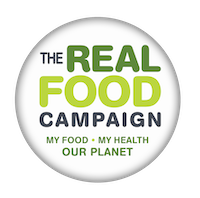
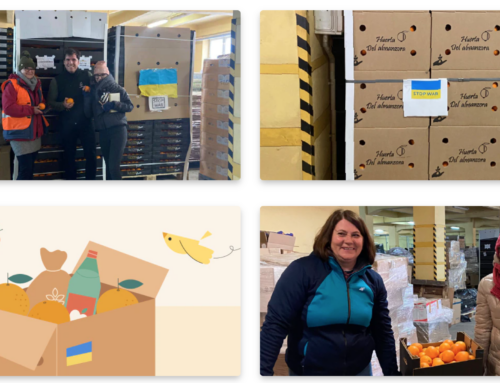
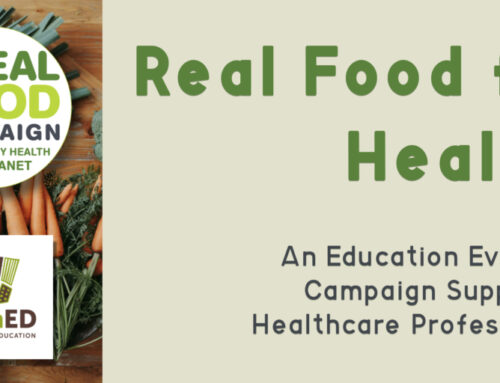
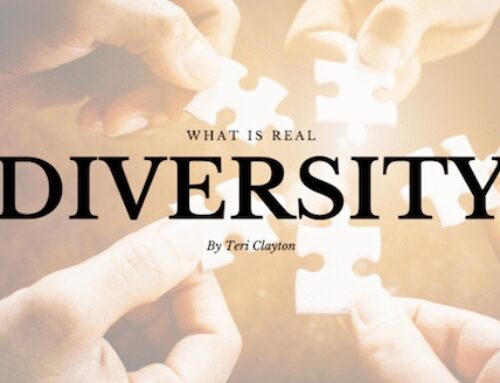
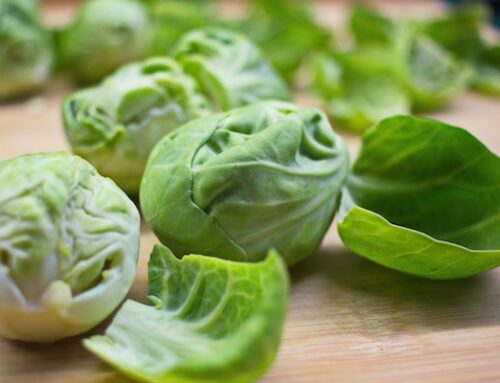
Thank you for this piece. The only detail that gave me pause was your warning about salt. As a person who has followed this lifestyle for years, added sodium is crucial for my health and well-being. Happy to share this well-formulated article.
I was referring to recent research by Christian Kurts (university of Bonn) and published in Science Translational Medicine that suggested that the relationship of salt to the immune system is more complicated than once thought. The research showed that some immune cells suffered when people were put on a high salt diet. Work in mice also showed that mice given very salty food were less effective at combatting bacteria.
The level of extra salt intake was roughly equivalent to that in two fast food meals. Perhaps not the amount that you and I are ingesting? Like you, I need to consume higher than the RDA level of salt as I have quite low blood pressure. But even when I add extra salt to food, I rarely consume the kind of level that is found in a processed/fast food diet.
I’m aware that the research around salt intake is complex and evolving , and that too little salt in the diet is as dangerous as far too much. In this article, I was making the point that the amount of extra salt (and sugar) in a diet that is exclusively based on processed food is likely to be harmful to the immune system.